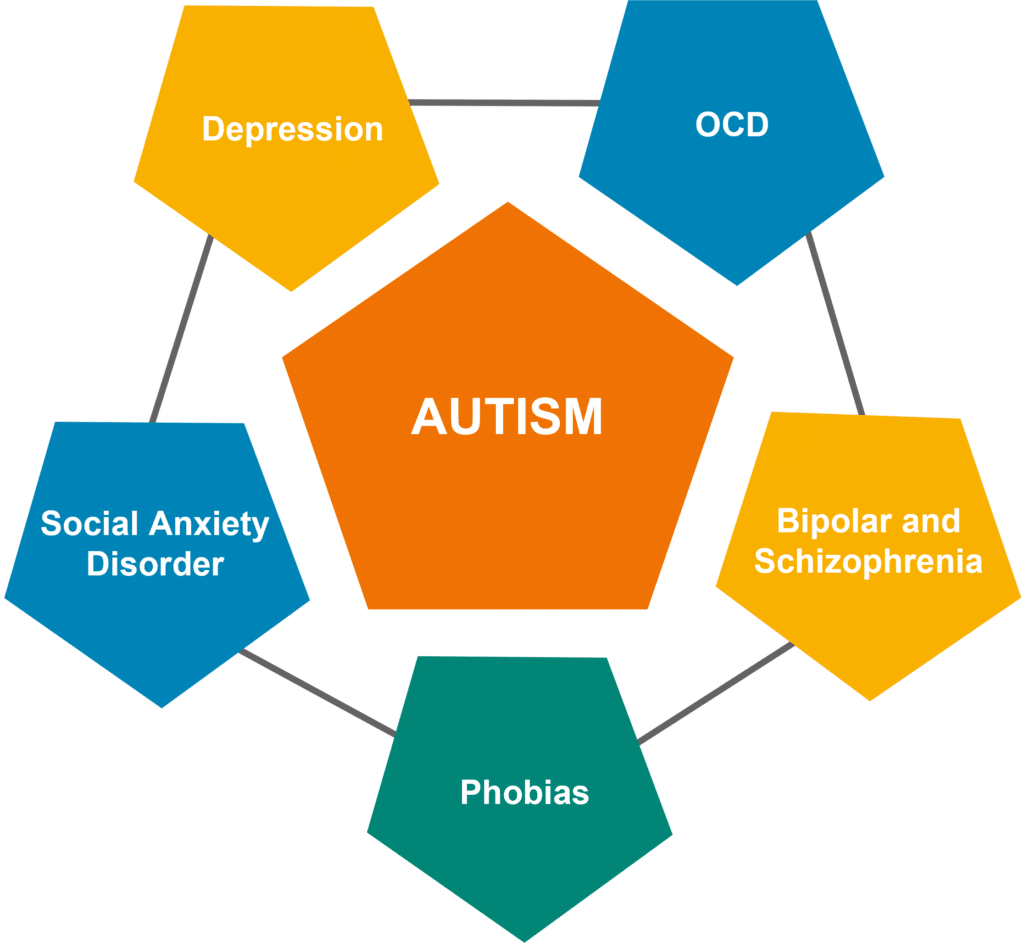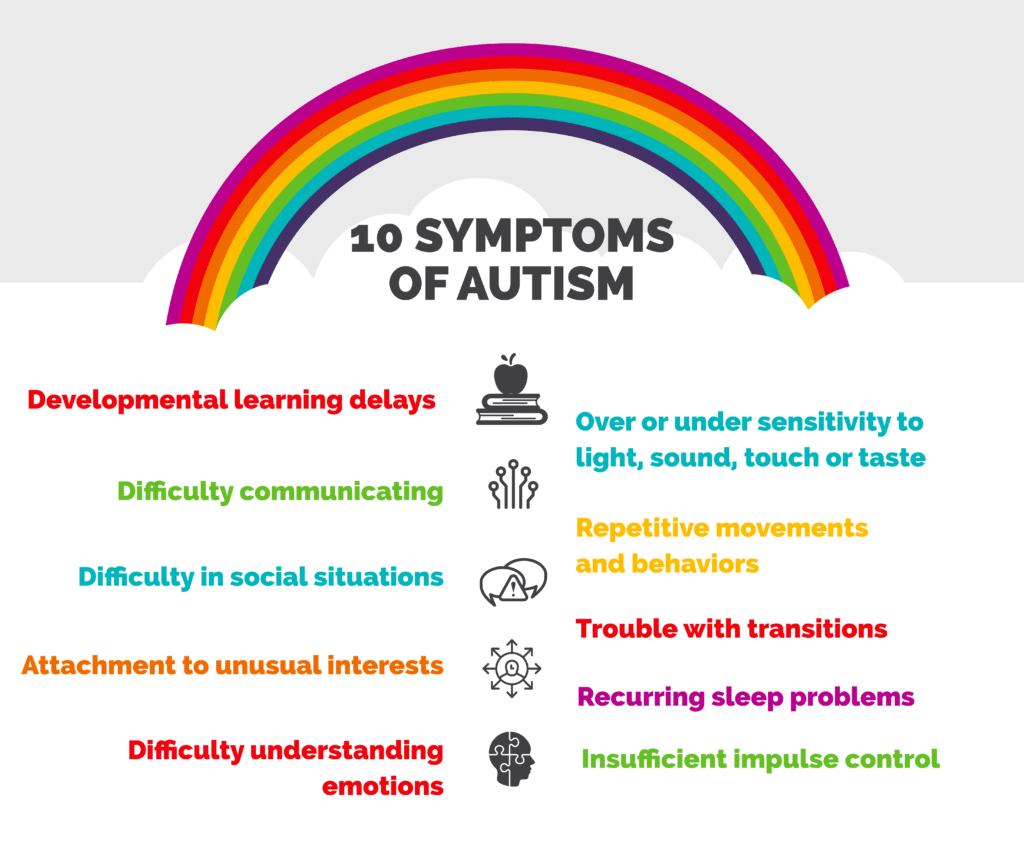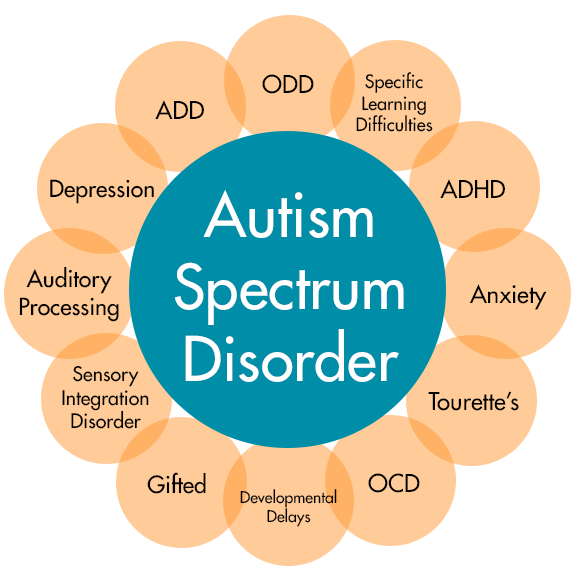Autism spectrum disorder (ASD) is a developmental condition that affect a person’s ability to socialize and communicate with others. People with ASD can also present with restricted and/or repetitive patterns of behavior, interests or activities. The term “spectrum” refers to the degree in which the symptoms, behaviors and severity vary within and between individuals. Some people are mildly impaired by their symptoms, while others are severely disabled. This is where New Roads Behavioral Health can come in and help with autism therapy in Salt Lake City Utah.
There are many characteristics of autism that overlap with other mental illnesses, so autism is often misdiagnosed as another mental illness. While there can be (and often are) people who have more than one type of mental illness—including developmental disorders—the two may be defined, treated, and managed very differently. This is why many people turn to New Roads Behavioral Health and autism therapy in Salt Lake City Utah.
Defining Developmental Disability
According to the National Institute of Mental Health (NIMH), a developmental disability is “a severe, long-term disability that can affect cognitive ability, physical functioning, or both. These disabilities appear before age 22 and are likely to be life-long. The term ‘developmental disability’ encompasses intellectual disability but also includes physical disabilities.”
People with developmental disabilities:
- develop the issue before age 18 (many are born with developmental disabilities)
- will be impacted by the disability for their entire lives
- have core symptoms which cannot be cured or effectively treated with medication
- may have physical, cognitive, and/or behavioral challenges
- are typically diagnosed by a psychologist or developmental pediatrician
Other Developmental Disorders
- Cerebral Palsy
- ADHD
- Hearing loss
- Learning disabilities
- Down Syndrome
- Blindness from birth
Defining Mental Illness
Any mental illness, according to the NIMH, is “a mental, behavioral, or emotional disorder. A mental illness can vary in impact, ranging from no impairment to mild, moderate, and even severe impairment.”
Serious mental illness, according to the NIMH, is “defined as a mental, behavioral, or emotional disorder resulting in serious functional impairment, which substantially interferes with or limits one or more major life activities.”
Reaching out to our professionals at New Roads Behavioral Health for autism therapy in Salt Lake City Utah can help define mental illness and treat with autism therapy in Salt Lake City Utah.
People with serious mental illnesses:
- may start having symptoms at any time of life
- may have hallucinations and delusions
- experience disturbances in thinking and perception
- may be effectively treated by medication
- may have temporary or cyclical symptoms
- are diagnosed by a psychiatrist or other mental health professional

Why Children Are Misdiagnosed
Autism is not always a child’s first diagnosis, particularly if he or she is verbal and of average intelligence. Not infrequently, children who wind up with an autism diagnosis receive a range of other diagnoses first—including, in some cases, other types of mental disorders.
There is a simple reason for these misdiagnoses: a child who is bright and verbal may not be evaluated for autism. As a result, the child’s symptoms are viewed not as a set of related challenges, but as individual issues that could potentially be signs of another mental illness. There are a number of behaviors in autism and other mental illnesses that may share characteristics and lead to an erroneous diagnosis.
Anxiety-Related Behaviors
Children with autism may perseverate on particular routines, objects, or phrases. This behavior is usually a tool for self-calming in autism. However, the behavior can also seem nearly identical to the anxiety-related behaviors that are a hallmark of obsessive-compulsive disorder (another type of mental disorder).
Deficits in Social Communication
Children with autism may hyper-focus on their areas of particular interest, essentially ignoring the interests and concerns of others. In autism, this behavior is the result of deficits in social communication; in essence, children with autism may be unaware that others have thoughts and feelings different from their own.
This could be another potential area of misdiagnoses, however, since the behavior itself can very much resemble some of the self-obsession that may be present in narcissistic personality disorder.
Losing Control of Emotions
Children with autism often lose control of their emotions and experience meltdowns (emotional and sometimes violent temper tantrums). In autism, meltdowns are almost always the result of either sensory assaults, anxiety, frustration, or a combination of all three.
In a child who has not been diagnosed with autism, however, the symptoms may look like oppositional defiant disorder which is considered a behavioral disorder.
Children with higher-functioning autism may also receive a range of inappropriate diagnoses before receiving their autism diagnosis. Some of the most common include ADHD, hyperlexia, learning disabilities, and speech delays.
It’s important to note that some children with very high functioning autism may not be diagnosed until they are well into their teens or even adulthood. When that happens, it can be tricky. Developmental disabilities usually appear in childhood, and it may be necessary to dig into an individual’s past to unearth signs that disabilities existed prior to adulthood.
If childhood information isn’t readily available, it may be impossible to provide an autism spectrum diagnosis even if it is the most appropriate diagnosis based on symptoms and behavior.

Common Conditions Among People with Autism
While many people with autism are misdiagnosed with other types of mental illness, many are also appropriately diagnosed with both autism and mental illness. In fact, mental illness is more common among people with autism than it is among the general population.
The most common co-occurring mental illnesses for people with autism include depression and anxiety.
It’s not completely clear why this may be the case. One theory suggests that there is a genetic link between autism and mental illness. Another theory points to the extreme challenges of living in the modern world with autism. The fact is that for many people with autism, it is anxiety-provoking and depressing to attempt to overcome social, sensory, and/or intellectual challenges that are simply part of who they are.
In addition to mental illness, many children and adults with autism receive additional developmental diagnoses. While it can be argued in many cases that the symptoms are associated with autism, it is sometimes helpful to know that a child is both autistic and, for example, diagnosable with ADHD, learning disabilities, hyperlexia, Savant Syndrome, or another disorder.
A secondary diagnosis, while it may or may not be completely appropriate, can sometimes provide direction for therapy, academic support, and services. Hopefully, in doing so, this could correct any potential misdiagnoses moving forward.
While there may be behaviors in both autistic people and people with other types of mental illnesses that seem to overlap, it is important to remember that there are differentiating factors between all mental illnesses and all developmental disorders in behaviors and management. However, this is not to say that these differentiating factors don’t overlap—in fact, they often do. Looking into autism therapy in Salt Lake City Utah can be great for those struggling.
Contact New Roads Behavioral Health
Our mission is to foster the development of happy individuals by treating our clients as whole and complex people who want to get better. We help them build value-based lives, both as individuals and members of a community.
Our team was incredibly grateful to receive an Autism Spectrum Disorder (ASD) training from the owner of The Autism Clinic in Salt Lake City, Dr. Julia Connelly, Ph.D. This training will help our staff continue to be a support to our clients who have ASD.
Our evidence-based treatment models combine the latest in mental health treatment with a cultivated community atmosphere, allowing us to guide clients through the mental health recovery process with both efficiency and compassion.
New Roads Behavioral Health offers multiple levels of care, each focused on a specific population. Our programs are results-driven, proven to provide better long-term success. These levels of care include: Residential, Transitional Living, Partial Hospitalization (PHP/day treatment), Intensive Outpatient (IOP), General Outpatient (GOP), and Psychiatric Outpatient.
New Roads invests heavily in the training of staff, including direct support staff, to ensure the ability to meet the unique treatment needs of clients with complex mental health diagnoses, enabling them to build a road towards a life worth living.

